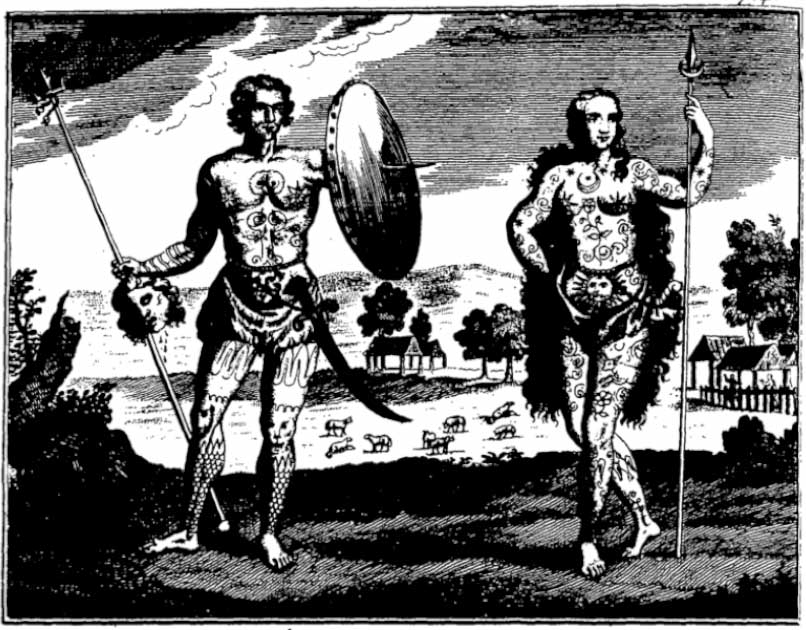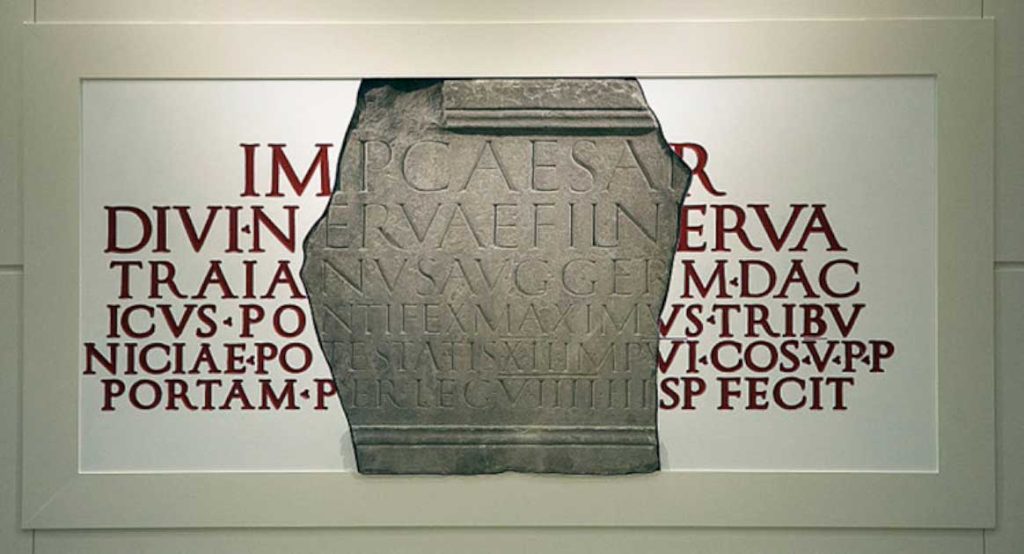For centuries the legions of the Roman army conquered all before them. Sweeping across Europe, North Africa and the near east, they defeated all before them and forged the Roman Empire, one of the largest and most enduring the world has ever seen.
Many of these legions found glory in their conquests, becoming legends for their achievements, their tenacity, and their fighting prowess. One such legion is the Roman “Legio IXth Hispana” (“9th Spanish Legion”), formed in the 1st century BC.
But the IXth, for all its glory, met with an unusual fate. Most Roman legions can be traced from their creation throughout their history, and we can say with confidence what ultimately happened to them. But the IXth, while stationed in Britain following the successful invasion of 43 AD, disappears.
How could an entire legion disappear? And what happened to the Roman IXth?
The Glory of the Ninth Legion
The Ninth Legion of Rome was one of the notable legions in the Imperial Roman army. It was operational from the 1st century BC until somewhere around 120 AD, during which it fought in many battles for both the Roman Republic and, later with the rise of the Caesars, the Roman Empire.
Most important of all, the IXth Legion was an important part of the Roman invasion of Britain and was permanently stationed in Britain after the invasion. However, after 120 AD, we have nothing – the IXth no longer appears in any records, and it simply vanishes from the tally of Roman armed forces.
Largely forgotten through history, public interest in the fate of the IXth gained momentum with the bestseller “The Eagle of the Ninth” by novelist Rosemary Sutcliff. The 1954 novel offered a new theory regarding the disappearance of the IXth Legion, suggesting that they were ordered north to fight a battle in Caledonia, modern day Scotland. There they were destroyed.
Caledonia was never conquered by the Romans, who ultimately preferred to built two enormous walls stretching across the country to keep the Scottish Pict warriors from rampaging into Roman Britain. Her theory found mass appeal and was made into a movie in 2011 named “The Eagle,” featuring a fictional narrative of what happened to the IXth.

The book and the movie created a general assumption that the IXth met a dark fate, but Sutcliff’s theories are more likely narrative fictions than plausible explanations. The disappearance of a legion without comment is one thing, but for a legion to be destroyed without record is unlikely.
The IXth in Roman Britain
So, aside from their mysterious disappearance, what do we know of the IXth? One of the last proofs of the existence of the Ninth Legion comes from evidence that they helped build the city of York. The York Museum has an inscription, which is probably the last known proof of the legion’s presence in Britain.
As a matter of fact, the IXth Legion of the Roman Army was transferred to York in 122 AD to replace the IXth Legion. Why was this? Maybe the struggles with native Britons had reduced the IXth to the point where a replacement was needed.
Or perhaps they were replaced. Another historical piece of evidence suggests that the IXth Legion was transferred to the Rhine rather than being reduced beyond fighting strength in York. Archaeologists have discovered Roman bricks and tiles in the Netherlands with stamp of the IXth Legion. However, there is no corroborating evidence that an entire Roman Legion appeared there, so perhaps only a small section of the unit was transferred to the Rhine.
All we know is that the IXth, after 120 AD, is never mentioned again.
Going Native?
Other surviving stories and theories about the IXth Legion also point toward some other possibilities for what happened to them. First of all, many theorists have suggested that the IXth remained stationed in Britain and were absorbed into the native Briton culture, settling down to maintain a Roman cultural presence if not a fighting one.
- Mithras, the Soldier’s God: A Roman Secret Society?
- Did a Lost Roman Legion Wind Up in Liqian, Northwestern China?
It is also possible that the IXth, while in York, were there destroyed, but not by the Picts of Caledonia but the Brigantes, ancient Britons of northern England. However, the war against the Brigantes and the disappearance of the IXth Legion never align on the historical timeline.
Hadrian’s Wall, being such a grand undertaking, may have been built in response to some military disaster like the destruction of the IXth, but again there is no evidence of this. And in fact there are tantalizing suggestions that the IXth may not have stayed in Britain at all.
Aside from the evidence from the Rhine, elements of the IXth may have traveled to the arid lands of the Middle East for the Third Jewish War under Emperor Hadrian. Many inscriptions suggest that the legion might have been active there up to at least 140 AD and some experts believe that the IXth Legion did join the fight against the Jewish Revolt.

But if the warriors of the IXth died fighting for their country in battle, shouldn’t they be celebrated as heroes? Why did their name dissolve away from the pages of history? Maybe the Caesars did not want the IXth Legion’s disastrous fate to become a part of history.
More ominously, were they part of a revolt against the Roman Empire in Britain? This would explain the sudden silence as to their fate, and also explain why certain parts of the IXth, who presumably stayed loyal, were broken off and appear elsewhere.
The positioning of the IXth Legion in a conflict-ridden Britain presents a strong case for their downfall in armed conflict. On the other hand, the role of the IXth Legion in establishing the city of York also reflects the social contributions of the Legion. But, absent any other evidence coming to light, the fate of the IXth will have to remain a mystery.
Top Image: No records exist of the Roman IXth Legion after 120 AD. Where did she go? Source: Nejron Photo / Adobe Stock.
By Bipin Dimri